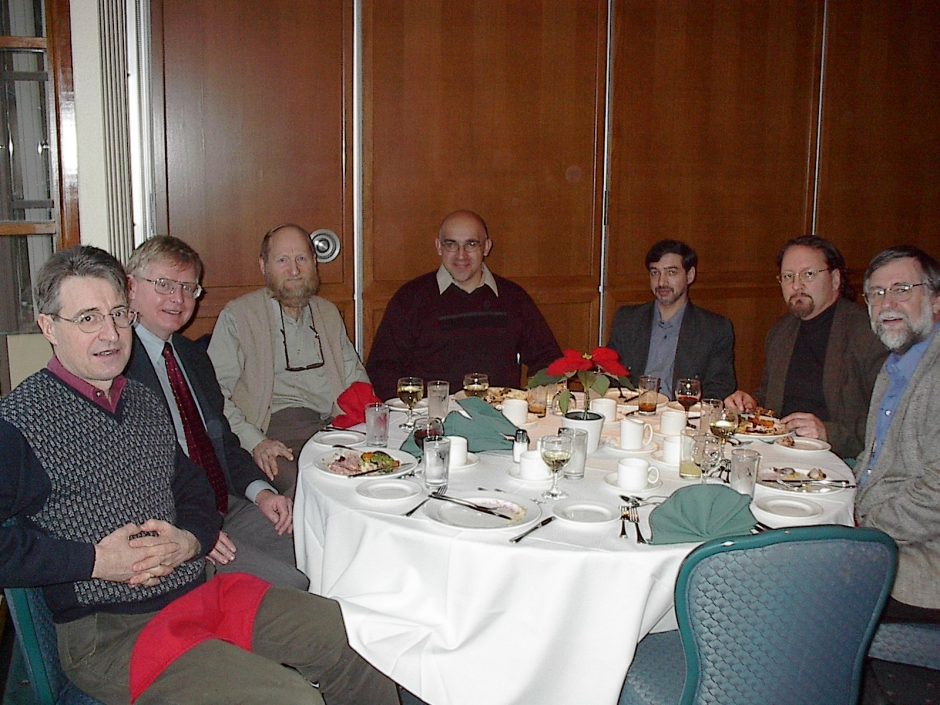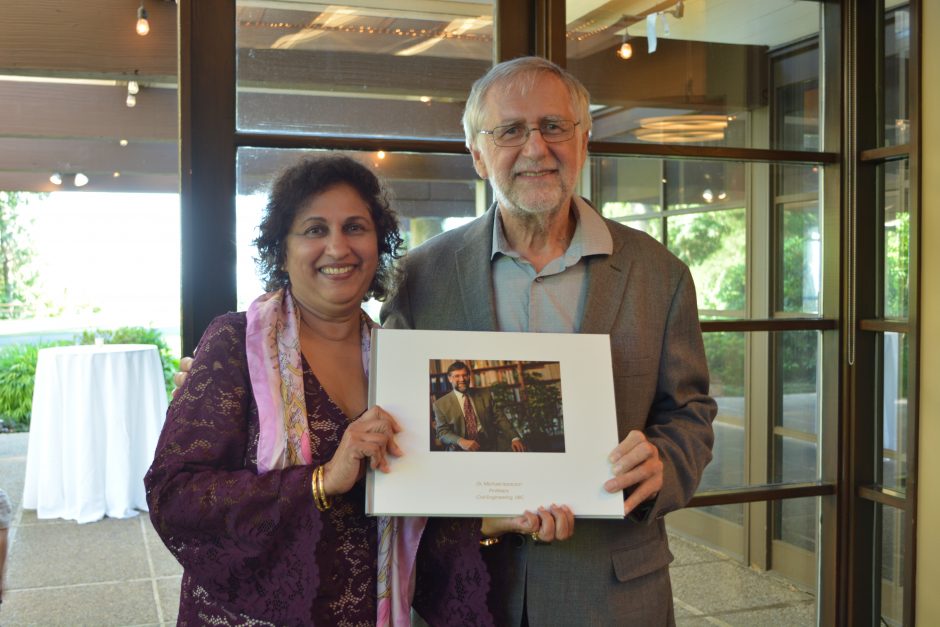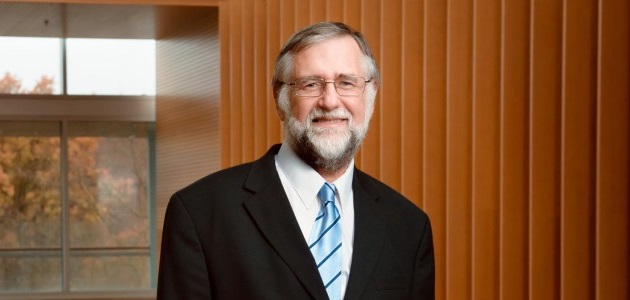After 47 years of service to the Civil Engineering Department at UBC, professor Michael Isaacson retired in June this year.
During his time in the Department, Professor Isaacson’s expertise and dedication to coastal and offshore hydrodynamics significantly influenced the way the Department’s Civil Engineering program is conceptualized and delivered, leaving a lasting impact on future generations of engineers
Dr Isaacson is the author of over 250 papers and has co-authored two books, including Mechanics of Wave Forces on Offshore Structures, a text that has been widely used in the offshore industry. He is also well known for his involvement in advancing the engineering profession—particularly during his tenure as UBC’s Dean of Applied Science, when he worked energetically to raise money for new educational facilities, recruit faculty and develop new programs—still finding time, amidst all this, for his teaching and research activities and his work as a specialist consultant on engineering projects.

Joining UBC in 1976, Professor Isaacson remained at the forefront of research, teaching, university service, and professional engagements. He served as the Head of the Department of Civil Engineering from 1992 to 1997, and later as the Dean of the Faculty of Applied Science from 1997 to 2008. Beyond his faculty, he served on UBC’s Vancouver Senate for an impressive 17 years and provided invaluable guidance as a Special Advisor to the Deputy Vice Chancellor of UBC Okanagan.
During his time as Dean of Applied Science at UBC, Dr. Isaacson had the opportunity to engage with an impressive spectrum of engineering and science disciplines. From the classic fields like civil engineering to cutting-edge areas like biomedical engineering, he witnessed firsthand the incredible diversity and ever-expanding scope of these professions. This exposure has allowed him to develop a nuanced understanding of the challenges and opportunities faced by professionals across these various disciplines.
One of the key insights Dr. Isaacson gained from his experience is that a “one-size-fits-all” approach is often inadequate when it comes to serving the diverse needs of different engineering and geoscience disciplines. He acknowledges that regulatory requirements and professional standards can vary significantly depending on the field. For instance, civil engineering may require specific authorizations under “demand side” legislation, while biomedical engineering may be subject to distinct regulatory requirements related to the products themselves. This diversity raises the question of how to ensure the highest standards of regulation, ethical conduct, and professional accountability while catering to the unique characteristics of each discipline.

According to Dr. Isaacson, four guiding principles drive his professional life: “One is to be service-oriented—to ask ‘how can I help you’ or ‘how can we make it happen.’ A second is to always be mindful of the big picture, and only get into the details when the overall direction has been suitably established. A third is to seek a diversity of viewpoints, learn and improve from these and engage in respectful debate. And, underlying all these is the need for enthusiasm, high energy and hard work.” Underlying all these principles is the unwavering need for enthusiasm, high energy, and hard work, serving as the foundation for success in his endeavors
Beyond his professional achievements, Dr. Isaacson cherishes his personal life and the time spent with his family. He and wife, Sharon, have four children and seven grandchildren between them. “All four children are happily married with successful careers—even though none of them opted for engineering!” he observes.
They share a second home in Gibsons on the Sunshine Coast where they enjoy spending time whenever they can—gardening, hiking, meeting friends and relaxing.
Despite stepping away from his full-time position, he remains deeply committed to the field of engineering and the growth of future generations of engineers. By offering his expertise through occasional teaching engagements, he can continue to inspire and educate students in the discipline he holds dear.
